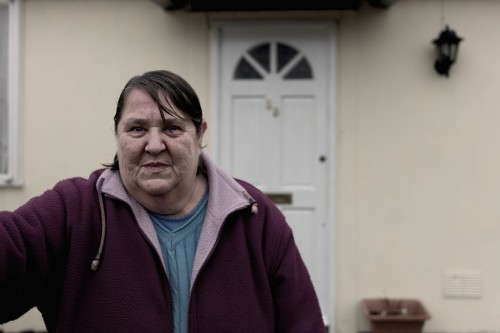 Ann: Will Storr is a phenomenon.* His specialty is writing good stories about people in bad places. He’s got a story in Matter about an extremely unpleasant disease called Morgellons. People with Morgellons have terrible itches, then tiny fibers creep out of their skin and make oozy sores. The disease sounds like a horror story out of Darwin’s parasitic wasps which lay their eggs in other insects that the hatchling wasps then eat from the inside out. And sure enough, the usual medical diagnosis isn’t Morgellons but DOP, delusions of parasitosis. The disease, according to the doctors, belongs to the mind part of the mind-body split. I read Will’s story after the great Ginny Hughes wrote on Twitter that somebody should interview him about how a writer works with sources who are what? bug-nuts? victims of unimaginative docs? unreliable? anyway, sources with whom a writer isn’t sure he shares a reality. But maybe Will himself should describe these sources who after all, are fellow humans.
Ann: Will Storr is a phenomenon.* His specialty is writing good stories about people in bad places. He’s got a story in Matter about an extremely unpleasant disease called Morgellons. People with Morgellons have terrible itches, then tiny fibers creep out of their skin and make oozy sores. The disease sounds like a horror story out of Darwin’s parasitic wasps which lay their eggs in other insects that the hatchling wasps then eat from the inside out. And sure enough, the usual medical diagnosis isn’t Morgellons but DOP, delusions of parasitosis. The disease, according to the doctors, belongs to the mind part of the mind-body split. I read Will’s story after the great Ginny Hughes wrote on Twitter that somebody should interview him about how a writer works with sources who are what? bug-nuts? victims of unimaginative docs? unreliable? anyway, sources with whom a writer isn’t sure he shares a reality. But maybe Will himself should describe these sources who after all, are fellow humans.
Will: The Morgellons piece is an extract from my latest book, which begins with me spending some time with a creationist who’s determined to prove to me, using the methods of science, that the earth is only 6000 years old. The thing about that guy – and about many of the people I’ve written about over the years – is that he wasn’t crazy. He was living an orderly, successful life. He was happy (as happy as any of us, anyway). There was no evidence of pathology, as far as I could tell. Also – he wasn’t stupid. So if he’s not crazy and not stupid – how the hell did he come to believe what he does?
 Ann: So you’re trying to see the guy in his own reference frame, right? Regardless of whether that reference frame is not one you share? in fact, is one that a lot of people would think is irrational?
Ann: So you’re trying to see the guy in his own reference frame, right? Regardless of whether that reference frame is not one you share? in fact, is one that a lot of people would think is irrational?
Will: I think there’s a temptation for journalists – especially science journalists – to go into these situations with a kind of accusatory mindset. They see these people as the enemy and there’s a will to see them humiliated in the text – ‘beaten’ somehow, so the forces of reason have a victory and we all feel satisfied as rational people. But, for me, that’s an intellectual dead end. I know that homeopathy doesn’t work, that the Holocaust took place, that we haven’t lived past lives. So what? That’s not interesting. What’s interesting, to me at least, is why these otherwise perfectly smart people believe what they do with such force, and how they manage to dismiss the huge amount of evidence that they’re wrong. Go down that rabbit hole and I think you find something far more interesting than “I’m smarter than you.”
Ann: That “I’m smarter here/these people are wrong” attitude always irritates the shit out of me. It’s smug and way too sure of its own virtue. And what’s even worse — I mean, you’re exactly right — is that you’re not learning anything new. So what did you find down the rabbit hole?
Will: Rather than being dumb or nuts, these are mostly people who have made honest mistakes. The people I tend to write about are usually far more wedded to their mistakes than the rest of us, of course. But, in the end, that’s all they are. So, in answer to your question ‘who are these people?’ – they’re all of us.
The book ends up being about the psychology of belief. In particular, I’m interested in how the stories we tell about the world, and our place within it, lead to irrationality.
Ann: One of the best parts of your Morgellons story — the part in black, as though you were visually whispering to us — talked about the very human, universal need for certainty. I’ve got a bad case of that myself. And you explained why you had the same need. Is that what these people you interview have? a bad case of needing certainty?
Will: Absolutely, I think a lot of people find doubt and nuance really difficult. This can be as much of a problem with rational science-minded people and journalists as anyone else. A lot of the time, “I don’t know” seem to be the hardest words. The most passionate people show the least doubt, of course.
As a journalist, I always worry when sources are too fierce in their determination to eradicate all possible doubt about their positions, whether that’s an angry atheist or an angry homeopath. During my research, I interviewed the famous social psychologist Jon Haidt and he said something like, “If you want to find irrationality, look for emotion.” I think that’s brilliant, and absolutely right.
Ann: Ok, that reframes the next question I had. I was thinking while I was reading the Morgellons story that during the interviews you must have had trouble handling your face. You must have been sitting there listening to those passionate, irrational people and trying not to look the way you felt — or at least the way I would have felt, which is not just doubting but almost repelled, in other words, emotional and irrational myself. So now my question is, during those interviews, how did you handle own irrationality?
Will: I think there’s just too much at stake – you could ruin an interview with a badly judged look. Occasionally, I’ll have to try not to laugh – I remember some UFO hunters having a very earnest health and safety briefing for what to do in event of a close encounter. At other times, it might be dangerous: for the Holocaust deniers chapter I went undercover with a dozen neo-Nazis and the historian David Irving as they toured various WWII sites. The only times I really struggle with my own emotion (aside from when I’m doing a human rights story, which is a whole other issue…) is when I feel people are being actively dishonest or trying to dodge reasonable questions. The only time I’ve ever really lost it was with David Icke, the man who thinks the world is being controlled by shape-shifting lizards. We had a stand-up row and he threw me out of his apartment. Not very professional. Because I don’t believe the role of a journalist is to change the mind of our subject. I believe it is to reveal the truth about what our subject really thinks.
Ann: To be witnesses.
Will: Yes, it’s about truth. If you’re pushing these people into the defensive, you’re not going to find out what they really think. There are political shows in the UK – Today on Radio 4 and Newsnight on BBC2- that are well known for this kind of pugilistic style. I think readers want it because they find it satisfying, but it’s not the job of the longform writer to change people or events. It’s, as you say, to witness and reveal them.
Ann: And that shall be our credo. We’re not investigative reporters — we don’t dislike them, we’re glad they’re out there, but we’re not them. We’re revealers.
Will: I’d qualify that by saying there’s a place for investigation. For my book I conducted a long investigation into James Randi, the famous Skeptical campaigner, and that interview took that investigative form. But that’s because I was accusing him of dishonesty and he seemed to be wriggling. Unless there’s a direct conflict such as this, I can see no reason why a journalist should want to go on the attack. The attacking is done in the copy, by what’s finally revealed.
Ann: So I’ll amend the credo: with some sources, the best thing a writer can do is go to that foreign land and report back on the new, amazing, and strange creatures that live there.
Will: Absolutely. And gloves only come off if you think it’ll reveal even greater truth. But the occasions on which this approach is justified are rare.
__________
*Will Storr is a British newspaper journalist, a photographer, a fiction writer, a radio documentarian, and an author. You really have to go to that webpage to appreciate what-all he does. The story in Matter was reprinted from his book, The Unpersuadables, UK title The Heretics.
Photos: by Will Storr
One thought on “Interview with Will Storr: Disputable Sources”
Comments are closed.